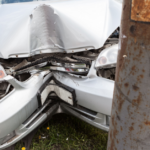Who Bears the Onus of Proof in a Defended Hearing?

When the police accuse you of committing an offence, it is usually up to them to prove it.
Under the common law tradition, it is not the job of the accused person to prove their innocence.
The prosecution must prove, beyond reasonable doubt, that all the elements of the offence were present.
Essentially, this means that it is possible to ‘put the prosecution to proof’ – which means that the defence forces the prosecution to prove every element or ingredient of the offence.
If they can’t do this, then the case should either be dropped before it gets to a hearing or trial, or thrown out of court.
For offences that require ‘specific intent’, such as murder, the prosecution must prove not only that the defendant caused the death of a person, but also that they intended to do so.
This was one of the great protections of our common law history, famously known as the ‘golden thread’ – the police must prove guilt in a defended hearing or jury trial.
This is generally still the case in NSW, according to the Evidence Act, which states that the burden of proof lies with the prosecution.
If a defence such as ‘self-defence’ is raised by the defendant, the prosecution will generally need to disprove that defence beyond reasonable doubt.
Moreover, in a circumstantial case, if there is any ‘reasonable hypothesis consistent with innocence’, an accused person must be acquitted of the charge.
However, the general rule that the prosecution bears the onus of proof is liable to change by statute, and the government has seized that opportunity to reverse the onus of proof for certain offences.
An example is the offence of having ‘goods in custody reasonably suspected of being stolen’. If a person is charged with that offence, it will be up to them to prove on the balance of probabilities that the suspected goods were derived lawfully.
There are also ‘strict liability’ offences which are those whereby the prosecution does not need to prove a mental element such as recklessness or intent.
The prosecution only needs to prove that the act was done.
Defences to strict liability offences are limited – perhaps the most common defence is ‘honest and reasonable mistake of fact’.
Strict liability and absolute liability offences are increasing.
Strict liability often applies to traffic offences: for example if you were speeding but just didn’t realise that you were going over the limit, this mistake will be not normally be an excuse because it is not reasonable.
The same thing applies to drink driving offences.
For these offences, it is not necessary for the prosecution to prove that you intended to speed or knew you were speeding when you were caught, or that you drank more alcohol than the legal limit allowed.
Absolute liability offences are similar to strict liability ones, except that there is no defence of honest and reasonable mistake.
This standard is used for many offences contained in the Commonwealth Criminal Code Act.
The fact that the police have to prove each element of the offence is one of the fundamental protections of the common law – like the presumption of innocence, it is one of the ways that the enormous and unequal power balance between the state and the individual is rectified to an extent.
This undermining of such as fundamental principle is not good news for defendants, especially those who can’t afford compete against the wealth and resources of the state in criminal proceedings.






